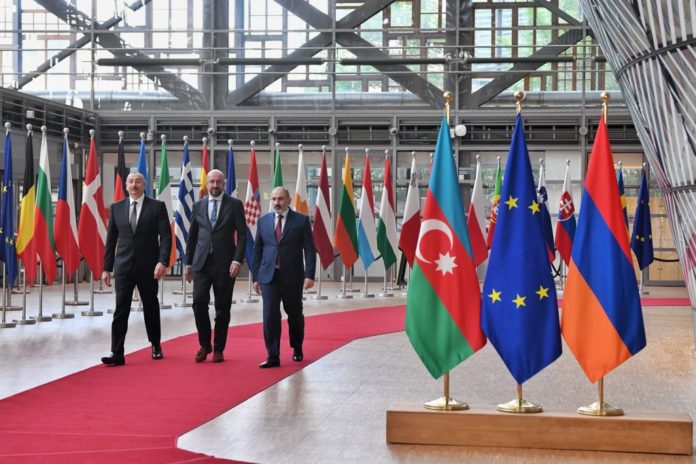Armenia and Azerbaijan are close to reaching a peace agreement that would help to alleviate Armenia’s relative isolation. The potential rapprochement runs parallel to the apparent progress Armenia and Turkey have made in establishing diplomatic ties and has the potential to upend the geopolitics of the South Caucasus. Despite progress, a number of forces, geopolitical interests of foreign powers, and internal politics in Armenia could scupper the potential deal, which could have far-reaching effects on the wider Black Sea region.
Recent Developments
In a summit that began May 22 in Brussels, Armenian Prime Minister Nikol Pashinyan and Azerbaijani President Ilham Aliyev agreed on transit lines, including the Zangezur corridor, and on the formation of an international committee to address the countries’ borders.
Though still far from reaching a definitive rapprochement, Armenia and Azerbaijan are poised to reach a tentative peace agreement. Over the past several months, Armenian officials have hinted at a major shift in Yerevan’s perspective on a long-simmering Nagorno-Karabakh conflict.
The first concrete sign came in March, when Baku released a framework document that stipulated the mutual recognition of territorial integrity of Armenia and Azerbaijan. Major points of the proposed peace treaty include the countries recognizing each other’s sovereignty and state borders, an end to territorial claims, and establishing diplomatic relations.









